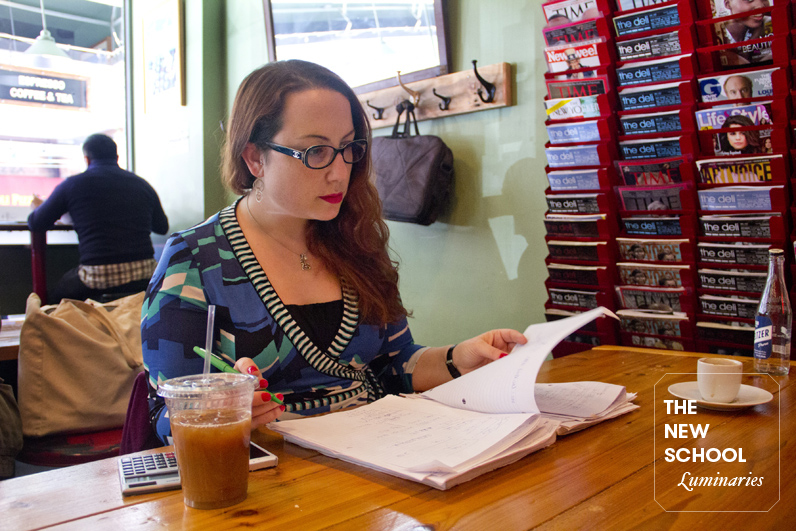
Military Wives and the Call to Surrogacy
Military wives make up 15 to 20 percent of American gestational surrogates, despite constituting less than 1 percent of the entire population. What causes this disproportion? The question is the crux of Elizabeth Ziff’s dissertation, which focuses on the rise and commercialization of gestational surrogacy.
“Surrogacy—and reproduction in general—is sort of a taboo topic,” says Ziff, a New School for Social Research sociology doctoral candidate. “That’s what initially captured my interest. There are so many misconceptions about infertility and how the reproduction system really works.” She points to political unease with sex education in schools as one probable cause. “But when I started my research about surrogates, I came to realize that it’s really such a niche market, with people who really know how to advocate for themselves.” But why do military wives make up such a big percentage of surrogates?
To answer that, Ziff first had to learn more about cultural perceptions of reproduction, especially in the United States. “I started my doctoral program with a huge interest in the ways we create family and how advances in science may be challenging the traditional, nuclear notion.”
She found that people describing feelings surrounding family often point not only to love but also to genetics, which may explain how progress in gestational surrogacy has caused a massive increase in its popularity. From her research, Ziff estimates that between 2004 and 2008 alone, the practice grew by 89 percent; nearly 1,400 infants were born to surrogate mothers just in 2008.
“Surrogacy—and reproduction in general—is sort of a taboo topic,” says Ziff, a New School for Social Research sociology doctoral candidate. “That’s what initially captured my interest. There are so many misconceptions about infertility and how the reproduction system really works.”
At this time, media reports started circulating about the disproportionate representation of military wives in the surrogate population, says Ziff. “I wanted to know how and if the military lifestyle informed this choice, whether this made military wives ‘ideal’ surrogate candidates.” Thus began a two-year process (aided by a 2013 National Science Foundation grant and a dissertation fellowship award from The New School for Social Research) of interviewing military wives across the country.
At first, Ziff thought that military wives were more likely to become surrogates out of a willingness to serve others (an essential quality in military culture), difficulties in maintaining full employment because of constant relocation, or loneliness when their husbands were deployed. Her research however, which is nearing its halfway point, has shown otherwise, “All my initial thoughts are somewhat debunked at this point,” says Ziff. “Answers I’ve recorded during my interviews with military wives are consistent with those done by others on the general population of surrogates, so I’m having to really analyze everything to look for small, but key, differences.”
When asked what she’s learned about evolving definitions of family, Ziff remarks that she has observed some change. “It’s a slow process, but we are definitely seeing a broadening of families’ extended networks.” Surrogates, she notes, are now staying in closer contact with the intended parents long after the birth of the child and being incorporated into a larger family unit. “Overall, though,” she adds, “we’re still stuck in the 1950s when it comes to the perception of the ideal family. Even considering new additions and definitions concerning divorce policy and marriage, there is a lot of cultural lag between what individuals do and what we are told is acceptable.”
Ziff, who plans to graduate with her PhD in spring 2016, currently teaches a course on the Sociology of Marriage and Family at Rutgers University. This fall, she will lead a class on Sex and Gender at Eugene Lang College.